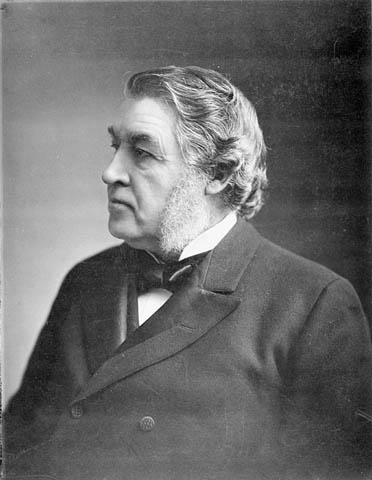1 January 1835 turned out to be memorable both for Joseph Howe and for Nova Scotia. On that day Howe's newspaper, the Novascotian, published a letter accusing the magistrates and police of taking £30,000 in illegal payments "from the pockets of the poor and distressed."

The letter was signed by "The People," but it was written by Howe's friend George Thompson. In publishing the letter Howe had thrown down the gauntlet to the magistrates, leaving them two unpleasant choices. They could ignore it and by implication plead guilty in the court of public opinion, or they could demand legal action against Howe and run the risk of damaging revelations.
The magistrates chose to prosecute. Howe refused to divulge the author's name and therefore it was he who was charged with "wickedly, maliciously and seditiously contriving... to stir up and excite discontent and sedition." In fact there was little doubt that Howe was guilty under the laws of the day. Every lawyer he consulted told Howe that he would lose. In those days, there was no defence of truth in libel cases, as there is today.
Howe decided to defend himself. A bright, self-educated man thoroughly familiar with the works of Shakespeare, he believed that he could persuade a jury to acquit him.
The court room was crammed to overflowing and was hot as a furnace. Presiding over the trial was Judge Brenton Haliburton, whom Howe had criticized more than once in his newspaper.
(Howe knew that he trifled with the high and mighty of Halifax not without risk and that he stood a good chance of being challenged and shot at. He would later fight a duel with Haliburton's son John. The two met at Point Pleasant on 14 March 1840. John fired first and missed. Howe discharged his pistol in the air.)
The Crown did not take long to present its case. Howe opened his defence by pouring scorn on his accusers. He argued that his criticisms were intended to preserve the peace, not disturb it. He accused various magistrates of petit larceny, of furnishing inferior supplies at exorbitant rates and of levying false fees and inflated fines.
After each accusation Howe would ask the jury, "Now gentlemen, with this evidence before me...could I have dared to refuse publication to that letter?" Howe had rarely spoken in public before but now he emerged a full-blown orator who brought tears to the eyes of the jurors.
The judge admonished the spectators for cheering and told the jury that it was their duty to return a guilty verdict. The jury ignored the judge - and the law - and declared Howe innocent after only 10 minutes of deliberation.
For a moment there was breathless silence, then shouts of approbation from the crowds. The celebration throughout Halifax was unprecedented. Howe boasted that he had won a victory for freedom of the press, but that was an exaggeration. The law is not changed by jury verdicts. Nevertheless, the verdict created a shambles among the local establishment as those accused by Howe resigned. It also launched Howe's long and distinguished political career.
Howe was first elected in 1836, with a simple message that "all we ask for is what exists at home - a system of responsibility to the people." Howe was not a radical or even a liberal reformer. He outdid even the most rabid Tory in his devotion to Britain. Nevertheless, it was largely due to his efforts that Nova Scotia became the first colony to achieve responsible government. The honour of heading that government, however, went to James Boyle Uniake, as Howe paid the price for his intemperate conduct.
Howe opposed the Confederation scheme and predicted that it would lead to the loss of independence and the economic ruin of Nova Scotia. His prediction that tariff increases under the new order would be disastrous to Nova Scotia turned out to be all too correct. In1868 he led a delegation to London to get Confederation repealed. He finally gave in to Sir John A. Macdonald's blandishments and joined the federal Cabinet.
Howe is remembered for his irrepressible ebullience and boundless energy, which he applied to the well-being of his native province. He saw his own greatest achievement in elevating the eyes of his countrymen "from the little peddling muddy pool of politics beneath their feet to something more enobling, exacting and inspiring."

 Share on Facebook
Share on Facebook Share on X
Share on X Share by Email
Share by Email Share on Google Classroom
Share on Google Classroom





